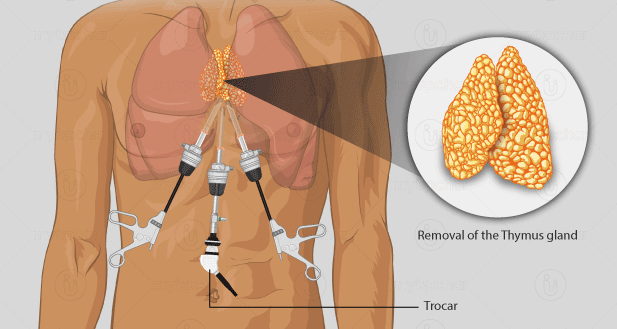Thymectomy
India
-
Our Price USD 3060
-
Hospital Price USD 3400
-
You Save : USD 340
Booking Amount: USD 306. Pay Remaining 90% at the hospital.
Book NowAdditional Credit
Among the important extras we offer as part of the Additional Credit are the following:
-
Site Tourism For The Patient & Attendant
-
Airport Pick & Drop Service
-
Ambulance service at airport
-
Priority appointments with The Doctor
-
Cancel Easily Anytime with Full Refund
-
Room Upgradation
-
Free Online Doctor Consultation Valued at USD 20
-
Free hotel Stay for 5 to 7 days Accordingly
-
Welcome Kit at Arrival
-
Interpreter
-
Medical Visa Assistance
What is Included?
- Doctor consultation charges
- Lab tests and diagnostic charges
- Room charges inside hospital during the procedure
- Surgeon Fee
- Cost of implant
- Nursing charges
- Hospital surgery suite charges
- Anesthesia charges
- Routine medicines and routine consumables (bandages, dressings etc.)
- Food and Beverages inside hospital stay for patient and one attendant.
What is not Included?
- Extra Radiology Investigations
- Healthcare Professionals Charges of other consultations.
- Other Requested Services such as Laundry etc.
- Additional Pharmaceutical Products and Medicines After Discharge from Hospital.
- Management of Conditions Unrelated to Procedures or Pre-Existing.
- The cost of any additional implants will be in addition to the package cost.
Package Description
Thymectomy:
It is a surgical operation in which thymic tissue is removed from the thymus. To assure the removal of all accessible thymus, a "maximal" thymectomy is necessary. All patients receiving thymectomy for myasthenia gravis with or without thymoma and in the treatment of myasthenia gravis with or without myasthenia gravis should have this surgery done.
Thymus is a gland located in the chest that aids in the development of the body's immune system. A thymectomy, on the other hand, is a surgical treatment that removes the thymus gland. It is no longer used to treat Myasthenia Gravis in the hopes of boosting the disease's chances of remission.
Disease Overview:
Myasthenia gravis
Myasthenia gravis is a neuromuscular condition caused by an autoimmune disease that produces weakening in the skeletal muscles that increases with exercise and improves with rest. These muscles are in charge of breathing and moving various portions of the body, such as the arms and legs.
Disease Signs and Symptoms
Muscle weakness that increases after times of exertion and improves after periods of rest is a characteristic of myasthenia gravis. The condition frequently (but not always) involves muscles that govern eye and eyelid movement, facial expression, chewing, talking, and swallowing.
The development of the condition can be rapid, and the symptoms of myasthenia gravis are frequently misdiagnosed. Myasthenia gravis causes varying degrees of muscular weakening in different people.
Myasthenia gravis patients may have the following symptoms:
- Muscle weakness in the eyes (called ocular myasthenia)
- one or both eyelids dropping (ptosis)
- double vision or muddled vision (diplopia)
- a change in facial expression swallowing difficulties shortness of breath poor speaking (dysarthria)
- Arms, hands, fingers, legs, and neck weakness.
- Myasthenia gravis causes extreme weakness that can lead to respiratory failure, which need prompt medical attention.
Disease Causes:
Myasthenia gravis is an autoimmune illness, which means the immune system fights itself instead of protecting the body from outside invaders.
Myasthenia gravis is caused by a malfunction in nerve impulse transmission to muscles. It happens when neuron and muscle communication is disrupted at the neuromuscular junction, which is where nerve cells join to the muscles they regulate.
Neurotransmitters are molecules that transfer information between neurons, or brain cells. When electrical signals or impulses travel along a motor neuron, the nerve terminals normally produce acetylcholine, a neurotransmitter that binds to acetylcholine receptors on the muscle. When acetylcholine binds to its receptor, it stimulates the muscle and causes it to contract.
Antibodies (immune proteins generated by the body's immune system) block, modify, or kill acetylcholine receptors at the neuromuscular junction in myasthenia gravis, preventing the muscle from contracting. Antibodies to the acetylcholine receptor are the most common cause, although antibodies to other proteins, such as MuSK (Muscle-Specific Kinase), can also disrupt transmission at the neuromuscular junction.
The thymus gland is a gland found in the chest.
Myasthenia gravis is linked to the thymus gland, which regulates immunological function. It develops slowly until adolescence, after which it shrinks and is replaced by fat.
The thymus is responsible for creating T-lymphocytes or T cells, a kind of white blood cell that defends the body from viruses and illnesses, and it plays a vital part in the development of the immune system throughout childhood.
Disease Diagnosis:
To confirm the diagnosis of myasthenia gravis, a doctor may perform or request numerous tests:
A physical and neurological examination will be performed. A physician will initially do a physical examination and assess the patient's medical history. The physician will assess muscular strength and tone, coordination, sense of touch, and look for eye movement impairment during a neurological examination.
A test for edrophonium. This test employs edrophonium chloride injections to temporarily alleviate weakness in persons with myasthenia gravis. The medication prevents acetylcholine breakdown and momentarily raises acetylcholine levels at the neuromuscular junction. It's most commonly used to check for ocular muscle weakness.
A blood test is required. Antibodies against acetylcholine receptors are unusually high in most people with myasthenia gravis. In around half of people with myasthenia gravis who don't have acetylcholine receptor antibodies, a second antibody termed anti-MuSK antibody has been discovered. This antibody can also be detected by a blood test. However, neither of these antibodies are present in some people with myasthenia gravis. These people are believed to have seronegative (antibody-free) myasthenia
Electrodiagnostics. Repetitive nerve stimulation is a diagnostic technique that involves repeatedly stimulating a person's nerves with tiny electrical pulses to weary certain muscles. Myasthenia gravis muscle fibres, like those in other neuromuscular illnesses, do not react as effectively to repeated electrical stimulation as those in healthy people. The most sensitive diagnostic for myasthenia gravis is single fibre electromyography (EMG), which identifies decreased nerve-to-muscle communication. When other tests fail to show abnormalities, EMG can be extremely helpful in detecting mild instances of myasthenia gravis.
Imaging for diagnostic purposes. A thymoma can be detected via diagnostic imaging of the chest, such as computed tomography (CT) or magnetic resonance imaging (MRI).
Pulmonary function tests are used to determine how well your lungs are working. Measuring breathing strength can aid in predicting whether or not respiration will fail, resulting in a myasthenic crisis.
Because weakness is a sign of many different diseases, the diagnosis of myasthenia gravis is frequently overlooked or delayed (sometimes up to two years) in persons who have modest weakness or weakness that is limited to a few muscles.
Disease Treatment:
Myasthenia gravis can now be managed in most cases. There are a variety of treatments available to aid with muscular weakness reduction and improvement.
Thymectomy. By normalising the immune system, this procedure to remove the thymus gland (which is typically aberrant in persons with myasthenia gravis) can lessen symptoms and even cure some people. Thymectomy is beneficial for both persons with thymoma and those who have no evidence of the tumours, according to a NINDS-funded research. The operation decreased muscular weakness and the need for immunosuppressive medicines in 126 persons with myasthenia gravis and no visible thymoma, according to the clinical trial.
Antibody that is monoclonal. This medication aims to stop cholinergic antibodies from causing damage to the neuromuscular junction. Eculizumab was licenced by the United States Food and Drug Administration in 2017 for the treatment of generalised myasthenia gravis in people who test positive for the antiacetylcholine receptor (AchR) antibody.
Anticholinesterase medicines are drugs that inhibit the enzyme cholinesterase. Anticholinesterase medications such as mestinon or pyridostigmine, which decrease the breakdown of acetylcholine at the neuromuscular junction and hence enhance neuromuscular transmission and muscle strength, are used to treat the disease.
Drugs that inhibit the immune system. By inhibiting the formation of aberrant antibodies, these medicines boost muscular strength. Prednisone, azathioprine, mycophenolate mofetil, and tacrolimus are among them. The medications can have serious negative effects and need to be closely monitored by a doctor.
Intravenous immunoglobulin and plasmapheresis In severe instances of myasthenia gravis, these treatments may be a possibility. Antibodies attacking the neuromuscular junction can be found in plasma (a liquid component of blood). These therapies work by removing the harmful antibodies, but their effects generally only last a few weeks to months.
Plasmapheresis is a method in which dangerous antibodies in plasma are removed and replaced with good plasma or a plasma replacement using a machine.
Intravenous immunoglobulin is a highly concentrated infusion of antibodies derived from a large number of healthy donors that alters the immune system's function temporarily. It works by attracting and eliminating the antibodies that cause myasthenia gravis from circulation.
Information related to Treatment
Package Details
Days in Hospital
7 Days
Days in Hotel
*
14 Days
Room Type
Private
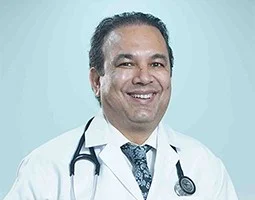
Treating Doctor
Dr. Umesh Kohli
Interventional Cardiologist- Echocardiography, Pacemaker Implantation, Coronary Angiography, Coronary Angiogram, Cardiac Ablation, Cardiac Catheterisation, ASD VSD repair, Cardioversion, Implantable Cardioverter-Defibrillators (ICDS), Peripheral Angioplasty, Non Invasive Cardiology, Chest Pain Treatment, Bypass Surgery, CT angiogram, Cardiology, Balloon Mitral Valbuloplasty
Accord Super specialty Hospital Faridabad, India
24 Years of Experience
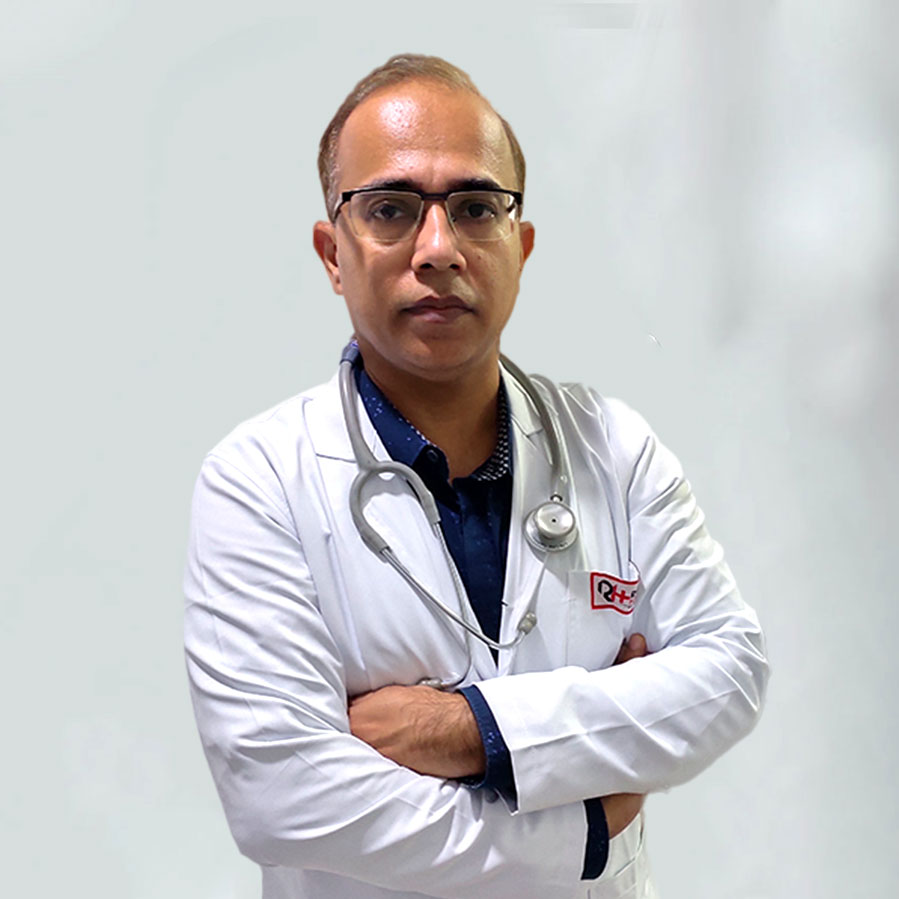
Treating Doctor
Dr. Sumit Narang
Cardiothoracic and Vascular Surgeon- Heart Failure Treatment, LVAD, Tricuspid, CABG on beating heart, Aortic Aneurysm Surgery, Double Valve Replacement, MVR, AVR, Peripheral & Carotid angioplasty and Stenting, TAVI/TAVR, PDA & ASD closures, VSD, Adult Valvuloplasty (mitral etc.)
Marengo Asia hospital, Faridabad Faridabad, India
26 Years of Experience
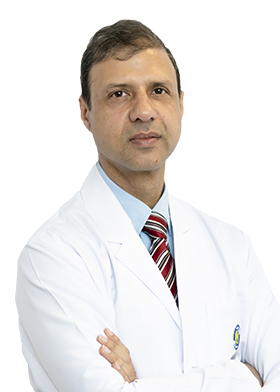
Treating Doctor
Dr. Rakesh Chugh
Cardiothoracic and Vascular Surgeon- Aortic valve surgery, Coronary artery bypass graft (CABG) surgery, Thoracic Surgeon, Minimal Access Surgery, MVR, AVR, Redo valve replacements, Peripheral Angiography, Carotid Artery Disease, Thoracoscopic Surgery (VATS), Decortication
Venkateshwar Hospital New Delhi, India
16 Years of Experience
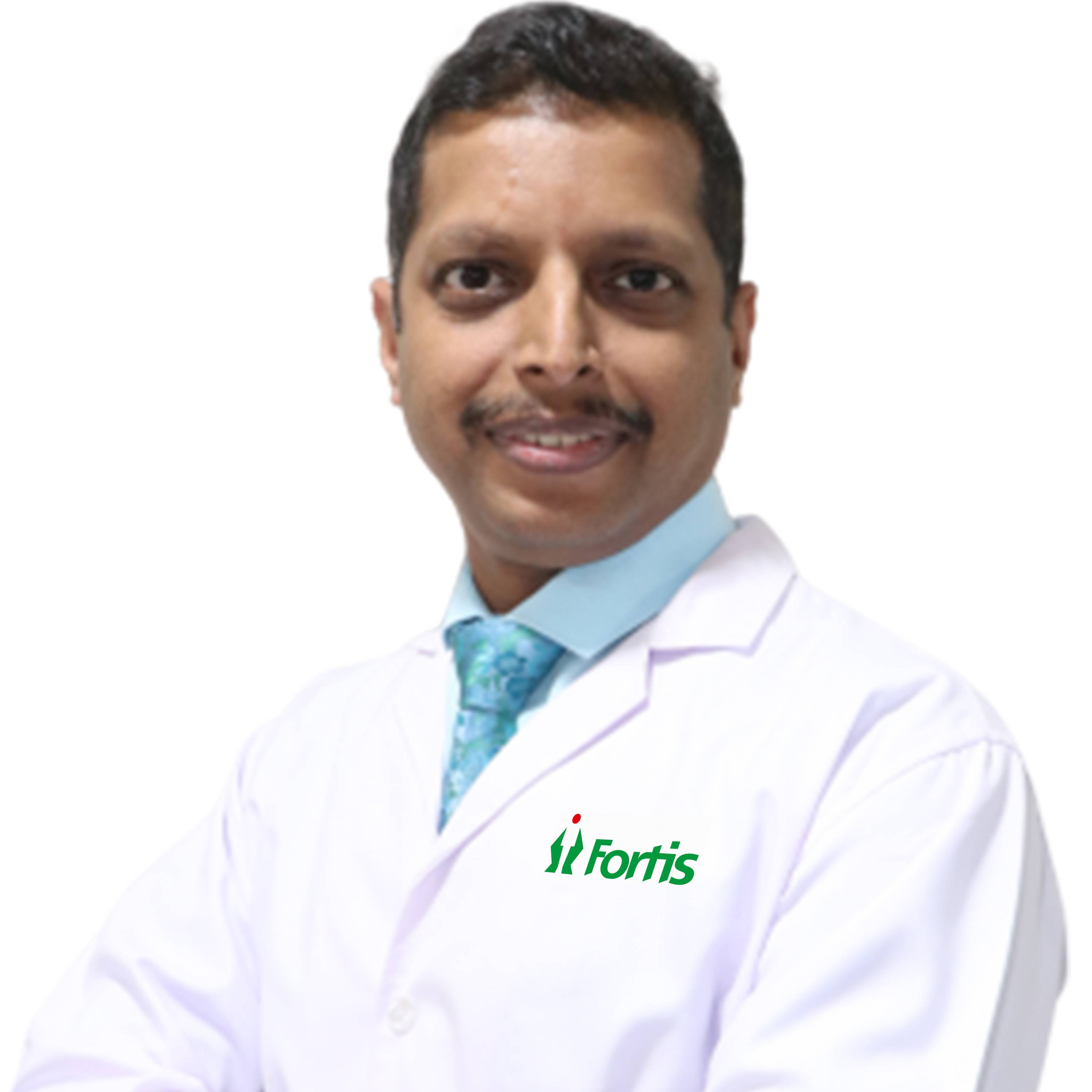
Treating Doctor
Dr. Satish Javali
Cardiothoracic and Vascular Surgeon- Coronary Angiography, Bypass Heart Surgeon, Cardiac Catheterisation, Intra - Arterial Thrombolysis Procedures, Cardiac Catheterisation, Cardiac pacing, Cardiac Catheterisation
Fortis Hospital, Kalyan Mumbai, India
20 Years of Experience
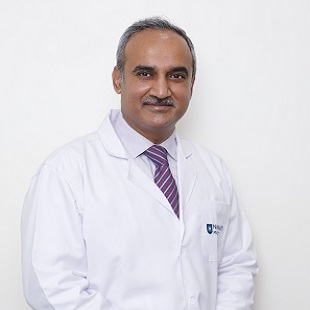
Treating Doctor
Dr. Vishal Khullar
Cardiothoracic and Vascular Surgeon- Heart transplant, Heart transplant, Mechanical Ventilation, Heart valve repair, Thoracic Aortic Aneurysm, Myocarditis Treatment, Lung Tranplantation
Nanavati Max Super Speciality Hospital, Mumbai Mumbai, India
18 Years of Experience
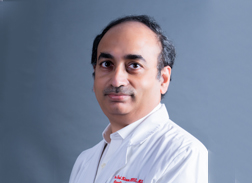
Treating Doctor
Dr. K.V.S.S. Sai Kiran
Cardiothoracic and Vascular Surgeon- Congenital heart surgery, Coronary artery bypass graft (CABG) surgery, Valvular surgery, Cardiothoracic Surgeon, Cardiothoracic Surgeon, Vascular Surgeon, Vascular Surgeon, Minimally invasive Cardiac Surgery
Star Hospitals, Hyderabad Hyderabad, India
27 Years of Experience
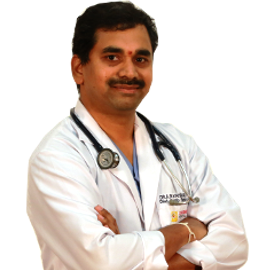
Treating Doctor
Dr A R Krishna Prasad
Cardiothoracic and Vascular Surgeon- Congenital heart surgery, Coronary artery bypass graft (CABG) surgery, Valvular surgery, Pacemaker Implantation, Total arterial bypass surgery, MVR, AVR, Aortic Dissections and Aortic Aneurysms, Pacemaker Implantation, PDA closures, Complex coronary and adult interventions, Pacemaker Implantation, Endovascular Surgery for Varicose veins, Pacemaker Implantation, Peripheral vascular intervention, Pacemaker Implantation
Medicover Hospitals, Chandnagar Hyderabad, India
22 Years of Experience
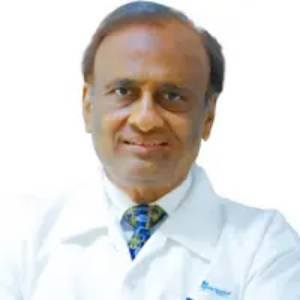
Treating Doctor
Dr Dasari Prasada Rao
Cardiothoracic and Vascular Surgeon- Aortic valve surgery, Arrhythmia surgery, Pacemaker Implantation, Transcatheter Aortic Valve Implantation (TAVI), Angioplasty, Open heart Surgeon, Heart Bypass, Open heart Surgeon, AVR, Pacemaker Implantation, TOF, Angioplasty Stenting, PCI (Percutaneous Coronary Interventions), Intra - Arterial Thrombolysis, PDA closures, Device Closure ASD/PDA, Pacemaker Implantation, Pacemaker Implantation, Angioplasty, Pacemaker Implantation
Apollo Spectra Hospitals Hyderabad, India
46 Years of Experience
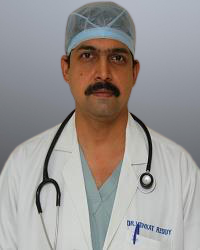
Treating Doctor
Dr Karri Venkata Reddy
Cardiologist- Cardiac Thoracic and Vascular Surgery, Mitral Valve Replacement & Repairs, Aortic Valve Replacement & Repairs, Balloon Valvuloplasty, Intra - Arterial Thrombolysis, Cardiac pacing
Apollo Hospitals Hyderguda Hyderabad, India
26 Years of Experience
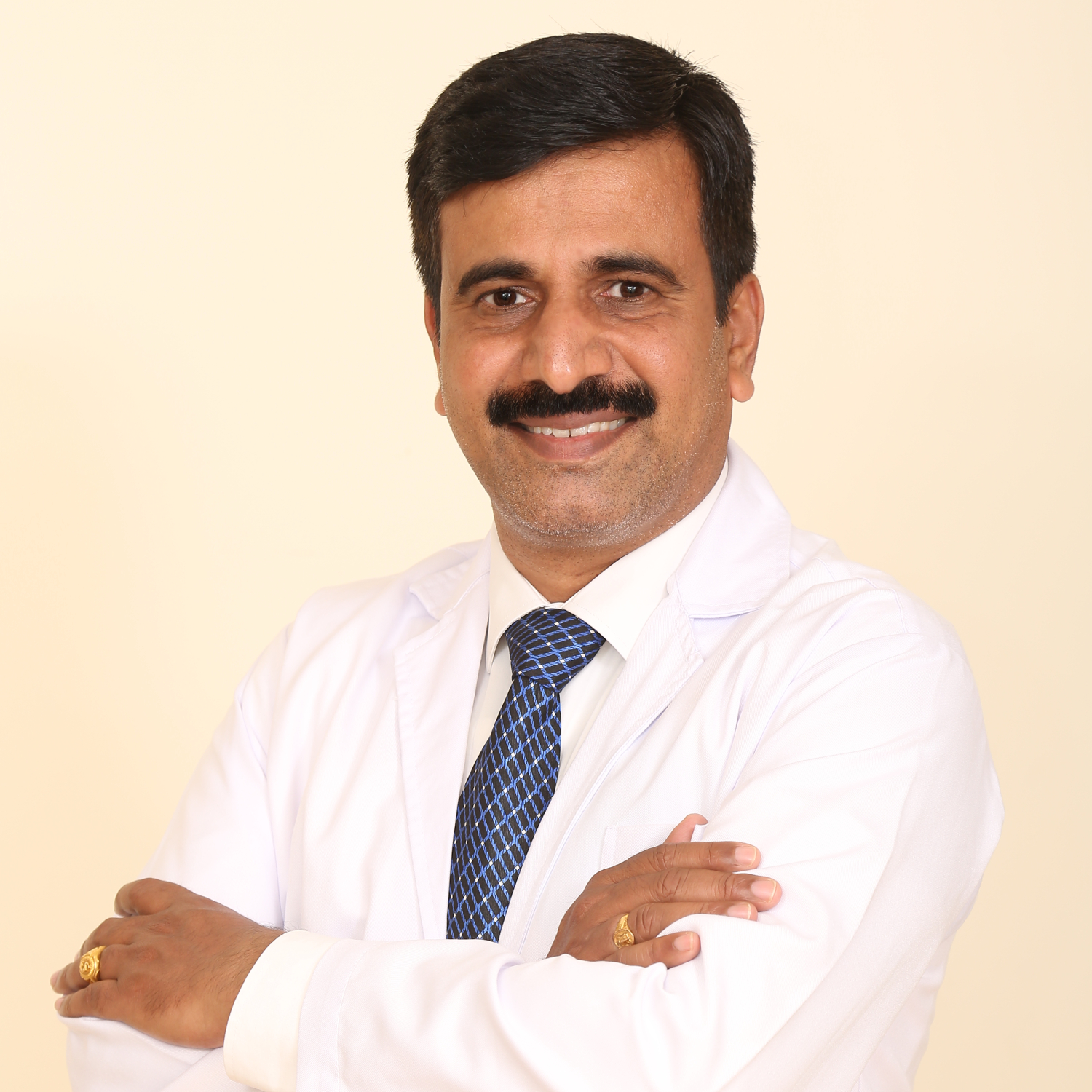
Treating Doctor
Dr. Govini Balasubramani
Cardiothoracic and Vascular Surgeon- Congenital heart surgery, Coronary artery bypass graft (CABG) surgery, Heart transplant, Hernia Repair Surgery, Double Valve Replacement, Coronary Interventions through radial access, Bronchoscopy, Laser Tracheal Surgery, Thoracoscopic Surgery (VATS), Thoracoscopy (Flexirigid and Rigid)
Fortis Hospital, Vadapalani Chennai, India
21 Years of Experience

